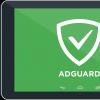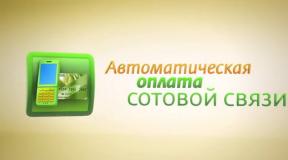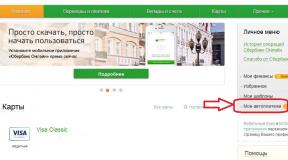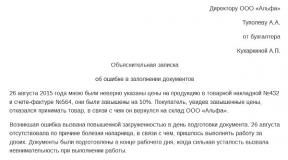Non-traditional forms of work with parents in preschool. The introduction of non-traditional forms of work with parents in a modern kindergarten on the example of the Krylovsky garden Non-traditional forms of work with children and parents
PROJECT

"Kindergarten No. 10 combined type"
With. Vylgort
Vylgort 2015
Content
Introduction………………………………………………………………………….3
Modern approaches to the organization of interaction between the family and the preschool educational institution………………………………………………………………………………….5
The principle of unity of educational influences of the preschool educational institution and the family and its implementation………………………………………………………………………….10
Organization of cooperation: teachers - parents - children…………....13
Forms of interaction between the family and the preschool educational institution…………………………………………………………………………………………………16
Conclusion…………………………………………………………………...25
Used literature………………………………………………..26
Applications
INTRODUCTION
“Parents not only do not interfere or interfere with work, but, on the contrary, can contribute to rapid success”
D. Lashley
Modern conditions for the activities of preschool institutions put forward interaction with the family to one of the leading places. According to experts, communication between teachers and parents should be based on the principles of openness, mutual understanding and trust. Parents are the main social customers of the kindergarten, so the interaction of teachers with them is simply impossible without taking into account the interests and needs of the family. It is for this reason that many preschool institutions today are guided by the search for such forms and methods of work that allow them to take into account the actual needs of parents and contribute to the formation of an active parental position.
Today, when parents often experience difficulties in communicating with their own child, one cannot limit oneself only to the promotion of pedagogical knowledge, in which parents are only passive participants. The initiation by teachers of interaction with the family only on financial and economic issues hinders the development of versatile, constructive relations that are useful to all participants in the educational process. The underestimation of the resources of the family, the inability to competently "manage" them, hinders the transition of both public and family education from one qualitative state to another.
The desire of preschool teachers to change the form of communication between teachers and parents is undoubtedly a positive trend. Effectively organized cooperation can give impetus to building interaction with the family on a qualitatively new basis, which implies not just joint participation in the upbringing of the child, but an awareness of common goals, a trusting attitude and a desire for mutual understanding.
In order to implement the project of the preschool educational institution "Kindergarten and family - a single educational space", as well as to transfer interaction with parents to a new level, taking into account modern requirements, a project was developed"Non-traditional forms of work with parents in preschool educational institutions". The project is being implemented jointlyteachers , parents and children group "Sunshine" in MDOU "Kindergarten of the combined type No. 10" with. Vylgort.
Objective of the project:
search and implementation of the most effective forms of cooperation with the parents of pupils.
Tasks:
Establish partnerships with the family of each pupil, join forces for the development and upbringing of children.
To create an atmosphere of common interests, emotional mutual support and mutual penetration into each other's problems.
Activate and enrich the educational skills of parents.
Maintain their confidence in their own teaching abilities.
Expected results:
development of motivation of teachers to achieve the optimal level of constructive and favorable relationships between the teacher and parents;
implementation of the experience gained in the professional activities of the preschool educational institution;
an increase in parental satisfaction with the work of the teacher and the preschool educational institution as a whole.
Project implementation period:
I stage - Identification of the needs of parents in the field of upbringing and education of their own child -2007-2008;
II stage - Pedagogical education of parents and their involvement in the life of the group -2008-2009;
III stage - Partnership of teachers and parents in the activities of preschool educational institutions -2009-2010 year.
Modern approaches to the organization of interaction between the family and the preschool educational institution
At the heart of the new concept of interaction between the family and the preschool institution is the idea that parents are responsible for raising children, and all other social institutions are called upon to help, support, guide, and supplement their educational activities. The officially implemented policy in our country of transforming education from family to public is becoming a thing of the past. Recognition of the priority of family education requires new relations between the family and the preschool institution. The novelty of these relations is determined by the concepts of "cooperation" and "interaction".
Cooperation - this is communication "on an equal footing", where no one has the privilege to indicate, control, evaluate.
Interaction is a way of organizing joint activities, which is carried out on the basis of social perception and through communication. In the "Dictionary of the Russian Language" by S. Ozhegov, the meaning of the word "interaction" is explained as follows:
1) the mutual connection of two phenomena;
2) mutual support.
The main point in the context of "family - preschool" is the personal interaction of the teacher and parents about the difficulties and joys, successes and failures, doubts and reflections in the process of raising a particular child in a given family. Helping each other in understanding the child, in solving his individual problems, in optimizing his development is invaluable.
It is impossible to move to new forms of relations between parents and teachers within the framework of a closed kindergarten: it must become an open system.The results of foreign and domestic research make it possible to characterize what constitutes the openness of a preschool institution, including "openness inward" and "openness outward."
To give a preschool institution "openness inside" means to make the pedagogical process more free, flexible, differentiated, to humanize the relationship between children, teachers, and parents. Create conditions so that all participants in the educational process (children, teachers, parents) have a personal readiness to discover themselves in some activity, event, talk about their joys, anxieties, successes and failures, etc. An example of openness is demonstrated by the teacher.The teacher can demonstrate his openness to children by telling them about something of his own - interesting, seen and experienced on holidays, thereby initiating in children a desire to participate in the conversation. Communicating with parentsthe teacher does not hide when he doubts something, he asks for advice, help, in every possible way emphasizing respect for the experience, knowledge, personality of the interlocutor.At the same time, pedagogical tact, the most important professional quality, will not allow the teacher to stoop to familiarity and familiarity.
By his personal readiness to discover himself, the teacher "infects" children and parents. By his example, heinvites parents for confidential communication, and they share their anxieties, difficulties, ask for help and offer their services, freely express their claims, etc.
"Opening the kindergarten inside" is the involvement of parents in the educational process of the kindergarten. Parents and family members can significantly diversify the lives of children in a preschool institution, contribute to educational work. This can be an episodic event that every family can afford.Some parents are happy to organize an excursion, a "hike" to the nearest forest, to the river, others will help in equipping the pedagogical process, and others will teach children something.
Some parents and other family members are included in the ongoing systematic educational and health work with children. For example, they lead circles, studios, teach kids some crafts, needlework, engage in theatrical activities, etc.
All subjects of the pedagogical process benefit from the participation of parents in the work of a preschool institution. First of all, children. And not just because they learn something new. Another thing is more important - they learn to look with respect, love and gratitude at their dads, moms, grandparents, who, it turns out, know so much, tell stories so interestingly, who have such golden hands. Educators, in turn, have the opportunity to get to know families better, understand the strengths and weaknesses of home education, determine the nature and extent of their assistance, and sometimes just learn. Thus, we can talk about a real addition to family and social education.
In order for the kindergarten to become a real, and not a declared, open system, parents and teachers must build their relationship on the psychology of trust. Parents should be sure of the good attitude of the teacher to the child. Therefore, the teacher needs to develop a "kind look" at the child: to see in his development, personality, first of all, positive traits, create conditions for their manifestation, strengthening, attract the attention of parents to them. The trust of parents in the teacher is based on respect for the experience, knowledge, competence of the teacher in matters of education, but, most importantly, on trust in him due to his personal qualities (caring, attention to people, kindness, sensitivity)
In the conditions of an open kindergarten, parents have the opportunity to come to the group at a convenient time for them, watch what the child is doing, play with the children, etc. Teachers do not always welcome such free, unscheduled "visits" of parents, mistaking them for control and verification of their activities. But parents, observing the life of the kindergarten "from the inside", begin to understand the objectivity of many difficulties (few toys, cramped washroom, etc.), and then instead of complaining about the teacher, they have a desire to help, to take part in improving the conditions of education in the group. And these are the first sprouts of cooperation.Acquainted with the real pedagogical process in the group,parents borrow the most successful methods of the teacher, enrich the content of home education. The most important result of a free visit by parents to a preschool institution is that they study their child in an environment that is unusual for them, notice how he communicates, studies, how his peers treat him. There is an involuntary comparison: does my child lag behind others in development, why does he behave differently in kindergarten than at home? Reflective activity "starts": am I doing everything right, why do I get different results of education, what should I learn.
The lines of interaction between the teacher and the family do not remain unchanged. Previously, preference was given to the direct influence of the teacher on the family, since the main task was to teach parents how to raise children. This area of activity of the teacher was called "work with the family." To save time and effort, "training" was conducted in collective forms (at meetings, collective consultations, in lecture halls, etc.). The cooperation between the kindergarten and the family assumes that both parties have something to say to each other regarding a particular child, the tendencies of his development. Hence the turn to interaction with each family, hence the preference for individual forms of work (individual conversations, consultations, family visits, etc.).
Interaction in a small group of parents with similar home education problems is calleddifferentiated approach.
There is another line of influence on the family - through the child. If life in a group is interesting, meaningful, the child is emotionally comfortable, he will definitely share his impressions with the household.
The main goal of all forms and types of interaction between the preschool educational institution and the family is to establish trusting relationships between children, parents and teachers, unite them into one team, educate the need to share their problems with each other and solve them together.
The interaction of teachers and parents of preschool children is carried out mainly through:
involvement of parents in the pedagogical process;
expansion of the sphere of participation of parents in the organization of the life of an educational institution;
parents attending classes at a convenient time for them;
creation of conditions for creative self-realization of teachers, parents, children;
informational and educational materials, exhibitions of children's works, which allow parents to get to know the specifics of the institution, acquaint him with the educational and developing environment;
various programs of joint activities of children and parents;
combining the efforts of the teacher and parent in joint activities for the upbringing and development of the child: these relationships should be considered as the art of dialogue between adults and a specific child based on knowledge of the mental characteristics of his age, taking into account the interests, abilities and previous experience of the child;
manifestation of understanding, tolerance and tact in the upbringing and education of the child, the desire to take into account his interests, without ignoring feelings and emotions; respectful relationship between the family and the educational institution.
In this way , the relationship of the preschool institution with the family should be based on cooperation and interaction, subject to the openness of the kindergarten inward and outward.
Principles of interaction with parents
Before we started the implementation of this project, the principles of interaction with parents were determined:
Realize that only the joint efforts of the family and the educational institution can help the child; Treat parents with respect and understanding.
Remember that a child is a unique individual. Therefore, it is unacceptable to compare him with other children. There is no one like him (her) in the world, and we must value his individuality, support and develop it. In teachers, the child should always see people who are ready to give him personal support and come to the rescue.
To educate in children boundless respect for their parents, who gave them life and put a lot of mental and physical strength so that they grow up and be happy.
Consider the wishes and suggestions of parents, highly appreciate their participation in the life of the group.
Consider the upbringing and development of children not as a set of general techniques, but as the art of dialogue with a specific child and his parents based on knowledge of the psychological characteristics of age, taking into account the child’s previous experience, his interests, abilities and difficulties that have arisen in the family and educational institution.
Respect what is created by the child himself (a story, a song, a building made of sand or other building material, modeling, drawing, etc.). To admire, together with parents, his initiative and independence, which contributes to the formation of self-confidence and self-confidence in the child, and in parents causes a sense of respect for the educators of their children.
Regularly in the process of individual communication with parents to discuss all issues related to the upbringing and development of children.
Show understanding, delicacy, tolerance and tact, take into account the point of view of parents.
The interaction of the family and the preschool educational institution on the development of the personality of preschool children can be traced in the implementation of the pedagogical principle -unity of educational influences. If such unity and coordination of efforts are not achieved, then the participants in the educational process are likened to Krylov's characters - Cancer, Swan and Pike, who, as you know, pulled the cart in different directions. If educational efforts do not add up, but counteract, then it is difficult to count on success. At the same time, the pupil experiences enormous mental overload, because he does not know who to believe, who to follow, he cannot determine and choose the right influences among those authoritative for him. To free him from this overload, to sum up the action of all forces, thereby increasing the influence on the personality, and the principle of the unity of educational influences requires.
The rules for implementing the principle help educators to cover all aspects of educational interaction.
The educator must educate himself. Educators and parents have no other way than to cultivate in themselves the qualities that they would like to instill in their children.
In the practice of education, conflict situations often arise when educators do not agree with the activities of the family or, on the contrary, the family has a negative attitude towards the requirements of educators. Parents often nullify the efforts of teachers, caressing, indulging their children, educating consumer psychology in them. Misunderstandings should be eliminated, relying not on what separates, but on what unites all educational efforts.
In this way , the practical implementation of the introduction of non-traditional forms of interaction between preschool educational institutions and parents requires the creation of a unified system of education. The systematic process of education is ensured by the observance of continuity and consistency in the formation of personality traits. In educational work, one should rely on previously acquired positive qualities, norms of behavior. Gradually, both the norms and the means of pedagogical influence should become more complex.
Organization of cooperation: teachers - parents - children.
In recent decades, new approaches to the pedagogical interaction of the kindergarten and the family have been outlined.
Recognition of the priority of family education requires other relationships between the family and educational institutions, namely, cooperation, interaction and trust. The cooperation of teachers and parents allows you to get to know the child better, look at him from different positions, see him in different situations, and, therefore, help in understanding his individual characteristics, developing the child's abilities.
The majority of parents are not professional educators. They do not have special knowledge in the field of upbringing and education of children and often experience difficulties in establishing contacts with children. Teachers and parents should look together for the most effective ways to solve emerging problems, determine the content and forms of pedagogical education in this regard. For the maximum effectiveness of such cooperation, simple informative monologue communication is not enough; it is necessary to strive for an equal dialogue with the families of pupils.
The decisive role in establishing such interaction belongs to teachers. Not all parents respond to the teacher's desire to cooperate with them. Work and interaction should begin with those who wish to participate in the life of the group, kindergarten. Gradually, tactfully involve other parents in cooperation, relying on like-minded parents, taking into account the interests of children and their families.
At the present stage, in working with parents, the concept of “involving parents” in the activities of a preschool institution has appeared, i.e. active participation of parents in the work of the preschool educational institution, which affects its functioning and development.
All work to involve parents in the activities of a preschool institution can be divided into three stages:
Identification of the needs of parents in the field of upbringing and education of their own child;
Pedagogical education of parents, their involvement in the life of the group;
III . Partnership of teachers and parents in the activities of preschool educational institutions.
At the first stage effective means of working with parents"Ladder of Trust" each of the steps of which is a kind of stage of rapprochement with the family.(Attachment 1)
Also, teachers will be helped by conversations with parents, home visits, observation of children, questionnaires, surveys, “Mailbox”.
Pedagogical education parents is the most important step. To implement the content of this work, the preschool educational institution uses collective and individual forms of interaction: question and answer evenings, business games, parent meetings (general and group), oral journals, meetings with interesting people, the Family Cafe parent club, the library, conversations, performance individual instructions, correspondence, visual agitation.
The main task at the third stage was the creation of conditions for the development of partnerships in the educational space of preschool educational institutions, and this can only be achieved through the activities of teachers, parents and children, which can be implemented in various forms.
In this way , the work of parents and teachers in the conditions of a preschool institution has a pronounced specific nature of cooperation, since both the content and the forms of relationships between parents and employees of a preschool institution have changed.
Forms of interaction between the family and the preschool educational institution
Not all families fully realize the full range of opportunities to influence the child. The reasons are different: some families do not want to raise a child, others do not know how to do it, others do not understand why this is necessary. In all cases, qualified assistance from a preschool institution is needed.
Currently, individual work with the family, a differentiated approach to families of different types, care not to lose sight and influence of specialists not only difficult, but also not entirely successful in some specific, but important issues, continue to remain topical tasks. families. Authoritarian methods of "education" of parents are excluded. You should interact with parents with interest and love for the child. In order for educators and parents to find time for such interaction, it must be specially organized. Each direction of a child's development involves special content and forms of communication between educators and parents, during which their psychological and pedagogical culture will increase.
With the help of a survey, we identified the needs of parents, their ability to communicate with children, their interests in the field of upbringing and education of children. For example, using a questionnaire"Let's get acquainted" we got to know our pupils, the interests of families, living conditions, the place of work of parents, favorite games and activities of children.(Annex 2)
Visiting the child's family gives a lot for its study, establishing contact with the child, his parents, clarifying the conditions of education, if it does not turn into a formal event. The teacher must agree in advance with the parents on the time of the visit that is convenient for them, and also determine the purpose of their visit. To come to the child's home is to come to visit. So, you need to be in a good mood, friendly, benevolent. You should forget about complaints, comments, do not allow criticism of the parents, their family economy, way of life, give advice (single!) tactfully, unobtrusively. The behavior and mood of the child (joyful, relaxed, quiet, embarrassed, friendly) will also help to understand the psychological climate of the family.
An open door day, being a fairly common form of work, makes it possible to acquaint parents with a preschool institution, its traditions, rules, features of educational work, to interest it and involve them in participation. But, given the current trend of parents' employment, in order to familiarize parents with the structure and specifics of conducting classes, the conditions for children's stay in preschool educational institutions, we conduct"Open House Week" for parents”, and not one day. As a result, the number of moms and dads who attended the events held during this week increased.
At the end of the week (Friday evening), a joint tea party is organized, at which parents exchange impressions of what they saw, and educators make recommendations.
Excerpts from reviews:
“Children are engaged with pleasure, despite the fact that work requires perseverance, accuracy”;
“It is interesting to watch how children skillfully transform into ducklings, frogs, funny animals, jump and dance”;
“I am satisfied with the work of all teachers in the kindergarten, I am calm for preparing the child for school”;
“I never thought that my child could do so well.”
Parents like this form of work, as it allows them to see the real achievements of each child, to learn some of the techniques and methods of working with children themselves.(Annex 3)
Evening conversations are held both individually and in groups. In both cases, the goal is clearly defined: what needs to be found out, how we can help. The content of the conversation is concise, meaningful for parents, and is presented in such a way as to encourage the interlocutors to speak. The teacher should be able not only to speak, but also to listen to parents, express their interest, goodwill.
Consultations. Usually a system of consultations is drawn up, which are carried out individually or for a subgroup of parents. Parents of different groups who have the same problems or, conversely, success in education (capricious children; children with pronounced abilities for drawing, music) can be invited to group consultations. The goals of the consultation are the assimilation by parents of certain knowledge and skills; help them solve problems. The forms of consultations are different (a qualified report by a specialist followed by a discussion; a discussion of an article read in advance by all those invited to the consultation; a practical lesson, for example, on the topic "How to teach a poem with children"). An important condition for planning consultations is to identify topics of interest to parents.
(Annex 4)
Parents, especially young ones, need to acquire practical skills in raising children. It is advisable to invite them toworkshops. This form of work makes it possible to talk about the methods and techniques of learning and show them: how to read a book, look at illustrations, talk about what they read, how to prepare a child’s hand for writing, how to exercise the articulatory apparatus, etc.(Annex 5)
parent meetings are warm friendly meetings over a cup of tea, during which the stated topics are discussed. Parents are notified in advance about the topic, date and time of the meeting, they receive letters of invitation written by the educator, and issued by their own child. After the meeting, parents have the opportunity to talk with the caregiver about their child individually.(Annex 6)
Each of our meetings with parents gives rise to reflection, causes a desire to analyze and reason. Before the meeting, the teacher, using a survey, determines the topic of interest to parents. Gives tasks to parents (prepare a speech, ensure the attendance of parents, etc.)
Each parent brings up his children as he sees fit, based on his knowledge, skills, feelings and beliefs. It is difficult for an outsider, even a teacher who is usually close to the parent, to resist this. And is it necessary? Should we break this tradition? Isn't it better to build it into a kind of principle: let the family raise children as they want. But she must certainly want and be able to educate. And to help parents choose the right path, infamily cafe we are talking at a round table. The topics of the meetings are formulated and requested by the parents. Over a cup of coffee or tea, in an atmosphere of calmness and goodwill, parents, teachers, specialists discuss pressing problems, issues of upbringing and development of children, engage in creativity with children, and jointly search for optimal forms of helping a child.
parent conferences. The main goal of the conference is the exchange of experience in family education. Parents prepare a message in advance, the teacher, if necessary, assists in choosing a topic, designing a speech. An expert can speak at the conference. His speech is given "for starters" in order to cause discussion, and if possible, then discussion. It is important to determine the current topic of the conference ("Caring for the health of children", "Introducing children to the national culture", "The role of the family in the upbringing of the child"). An exhibition of children's works, pedagogical literature, materials reflecting the work of preschool institutions, etc. is being prepared for the conference. You can finish the conference with a joint concert of children, employees of a preschool institution, family members.
Parents were also interested in such a form of joint work as"Master Class" , where teachers teach parents self-massage techniques, drawing, modeling, and how to make educational toys. The result of this work was the holding of "Master classes" by the parents themselves.
Given the busyness of parents, such a form of communication with the family is also used, such as"Parent Mail". Any family member has the opportunity in a short note to express doubts about the methods of raising their child, seek help from a specific specialist, etc.
Collaboration between a psychologist, educators and families helps not only to identify the problem that caused the difficult relationship between parents and the child, but also to show the possibilities for solving it. At the same time, it is necessary to strive to establish equal relations between the teacher-psychologist, educator and parents. They are characterized by the fact that the parents form an attitude towards contact, there are trusting relationships with specialists, which, however, do not mean full agreement, leaving the right to their own point of view. Relationships proceed in the spirit of equality of partners. Parents do not passively listen to the recommendations of specialists, but they themselves participate in drawing up a plan for working with a child at home.
A new form of pedagogical education of parents was the releasemagazine "Kaleidoscope". This is a mini-magazine, the pages of which provide a lot of useful information and practical advice on the upbringing and development of children. The magazine contains several sections, each of which reveals in more detail the secrets of successful upbringing and development of the child.. (Annex 7)
"Lessons for Parents" parents learn the methods and techniques of raising and educating children;
"Home playroom" introduces simple, interesting, and most importantly, useful games for children;
In chapter "Aibolit is in a hurry to help" recommendations are given for the preservation and promotion of health;
speech therapist's advice on the development of children's speech, contains a rubric"Assignments of Dr. Zvukov";
"Cinderella Workshop" gives the opportunity to plunge with the child into the world of creativity and fantasy.
Heading "Enjoy your meal" will tell you how to feed the child deliciously, what to serve on the festive table, how to surprise guests.
An effective way of working with parents isindividual conversations of educators and other employees with adult family members. In these conversations, parents are more willing and frank to talk about the grief that can sometimes be in the family, about the anxiety that the child’s behavior causes, about the success of the baby. Individual conversations can take place at the initiative of the teacher or the parents themselves. Sometimes it is necessary to agree on such a conversation in advance, sometimes it is enough to talk in the morning or in the evening when parents come to kindergarten.
The information collected in kindergarten is of great benefit in the pedagogical education of parents.library. During the child's stay in a preschool institution, parents can read a lot of pedagogical literature, and the teacher has the opportunity to guide and direct their reading. Books for such a library are selected and acquired mainly by the teacher of the group, but parents can also help in this. It is useful to keep a record of the literature that parents have read.
A special place in the promotion of pedagogical knowledge is occupied by the organizationcorners for parents. The creative use of this form of work makes it possible to widely acquaint parents with the issues of raising children. mostimportant feature Corner is that,All content is addressed to parents on behalf of children.
The design of textual and illustrative material in them can be - depending on the conditions - very different; stand, shelf or table for demonstrating children's works, pedagogical and fiction, specially equipped showcases, mats.
To systematize the content of the corner, you can arrange the materials into sections, and to update the texts, set the approximate time for their replacement. Yes, in the section"What did we do today" briefly talks about the activities of children during the day, demonstrates children's work. Section content changes daily.
In chapter "Our life" children tell what interesting things, walks, excursions, public holidays are waiting for them this month. Here you can also write about what participation parents will take in organizing these events, what and by what date the child needs to be prepared (for example, a message is posted that a long-distance excursion is being held on such and such a date, which means that the day before the “hike” it is necessary carefully check the child's shoes). This section can be updated once a month.
Chapter "Tips and Tricks" does not give parents a system of knowledge on pedagogy, but provides the necessary pedagogical information, introduces parents to the issues of education. The content of tips and recommendations should be correlated with the program material that is currently given to children in the group. In the same section, you can highlight the best experience of family education. In the same section, you can put an approximate mode of the child at home and in kindergarten, a menu for every day; give the information necessary for parents: the hours of the doctor's appointment, the manager; telephone, address; payment scale for the maintenance of a child in kindergarten. The materials in this section change every 2-3 months.
In chapter "Note" ads of a different nature are posted, the content of which is compiled on behalf of children.
The section most popular with parents is
"Our Children" , telling about what the children have achieved, what they have learned, what they have learned to do.
In chapter "Card file of good deeds" in one form or another reflects the activities of parents. It tells about the achievements of the parents, about how they help the group and the kindergarten. Thanks are given. This section is updated as needed.
All Ugolok material is completely replaced once a quarter.
A joint visits to museums, theaters, exhibitions, excursions into nature, hiking, all this allows children, parents, teachers to get to know each other better, acquire interaction skills, and children from single-parent families to compensate for the lack of male or female education.
Participation of parents in the celebrations and entertainment: acting as fairy-tale characters known to children according to the scenarios of autumn, New Year's, spring, graduation matinees gives parents the opportunity to watch their children not from the outside, but in the process of joint activities. Children are less worried when performing, they are happy and proud of their parents.(Annex 8)
At the end of each month, a family holiday is held in the group."Day of Leisure and Rest". Joint preparation and holding of this day contributes to the upbringing of kind, sympathetic children who love and respect mom and dad, sisters and brothers, grandparents, all friends and relatives.
Sports and intellectualcompetition and relay races , contests and quiz loved by both parents and children. Accepted Winnersactive participation in various competitions of the preschool educational institution, the district. (Annex 8)
Thus, the variety of forms and methods of work helps to find common ground with different categories of parents, and the interaction of the kindergarten with the family can be carried out in different ways. It is only important to avoid formalism.
Conclusion
Our project addresses the issue that the family and the kindergarten are chronologically connected by continuity, which ensures the continuity of the upbringing and education of children. What is important here is not the principle of parallelism, but the principle of interpenetration of two social institutions.
The experience of working with parents shows that the position of both parents and educators has become more flexible. Now they are not spectators and observers, but active participants in various events. Moms and dads feel more competent in raising children. Most parents began to purposefully deal with the problems of educating preschool children. They are interested in the problems of patriotic, moral and aesthetic education of children, their culture of behavior, familiarizing children with cultural values. Parents expressed their desire to hold circles: "Origami", "Modeling from salt dough", "Crochet", "Skillful hands", "Young sportsman".
Thus, the use of non-traditional forms of interaction between a preschool institution and the family contributes to an increase in the efficiency of work with parents, and allows creating a unified environment for the development of the child. Parents get the opportunity to get to know each other better, share experiences, get to know their children better, learn interaction, empathy, and co-creation.
In the future, we will improve the work we have begun, looking for new forms of interaction with parents, and introduce them into the work of the preschool educational institution. The joint concerted efforts of the kindergarten and the family make it possible to more successfully solve the important task of making the kindergarten a place of joy where children and parents would come with pleasure.
List of literature on this issue:
Antonova T., Volkova E., Mishina N. Problems and the search for modern forms of cooperation between kindergarten teachers and the child's family // Preschool education. 1998. N 6. S. 66 - 70.
2. Arnautova E. Methods for enriching the educational experience of parents // Preschool education. 2002. N 9. S. 52 - 58.
3. Belonogova G., Khitrova L. Pedagogical knowledge for parents // Preschool education. 2003. N 1. S. 82 - 92.
4. Interaction of an educational institution with the family as the main partner in the organization of the educational process (guidelines). - Orenburg: Orenburg IPK, 2003.
5. Grigoryeva N., Kozlova L. How do we work with parents // Preschool education. 1998. N 9. S. 23 - 31.
6. Dalinina T. Modern problems of interaction between a preschool institution and a family // Preschool education. 2000. N 1. - S. 41 - 49.
7. Doronova T. N. Interaction of a preschool institution with parents // Preschool education. 2004. N 1. - S. 60 - 68.
8. Doronova T.N., Solovieva E.V., Zhichkina A.E. et al. - M.: Linka-Press. Preschool and family - a single space for child development. - 2001. - S. 25 - 26.
9. Kozlova A. V., Desheulina R. P. Work of a preschool educational institution with a family. - M.: Sphere, 2004 - 112 pages.
10. Strumilin S. G. Non-traditional forms of work with parents of preschool educational institutions // New World. 1960. N 7. - S. 208.
Non-traditional forms of work with parents
Vylgort 2009
APPENDIX
Attachment 1
![]()
We trust you

count me
member of your team
![]()
We will cooperate
![]()
What does it give?
![]()
So what?
![]()
Who you are?
FIRST STAGE "WHO ARE YOU?"We don't know you
What to do?
Parents of pupils with a neutral and passive life position, as well as parents of newly admitted children.
Development of a booklet for preschool educational institutions. Parent meeting "Group presentation". Questioning the social expectations of parents. Poster information about the life of the group and the preschool educational institution as a whole.
SECOND STAGE "SO WHAT?"
Yes, we heard something about you
What to do?
Parents of children in the period of adaptation.
Parent meetings, confidential letters.
THIRD STEP "WHAT DOES IT GIVE?"
It is interesting
What to do?
Parents with a neutral and passive life position.
"Week of open doors", "Master classes", joint activities with children.
FOURTH STAGE "WE WILL COOPERATE"
It attracts us
What to do?
Parents who are ready to actively cooperate.
Holding joint events, holidays. Creation of family clubs.
FIFTH STEP "CONSIDER ME AS A MEMBER OF YOUR TEAM"
Need my help?
What am I doing?
Parents.
I actively participate in all activities of the group and kindergarten. I provide sponsorship.
SIXTH STEP "WE TRUST YOU"
We will tell everyone about you
What are we doing together?
Alumni parents. Parents of children at risk, children with special educational needs. The inhabitants of the village.
We rejoice in the success of our graduates. We discuss achievements, problems of children and ways to solve them. We share experience.
Appendix 2
Questionnaire for parents
"Let's get acquainted"
We are glad to see you and your child in our kindergarten.
We hope that the baby here will be comfortable, fun, interesting.
Let's get acquainted.
FULL NAME. child ___________________________________________
Date of Birth__________________________________________
Home address, phone number _____________________________________
Family composition (which child is in the family account) ______________________________________________________________
MOTHER
Education, specialty __________________________________
Place of work, work phone, mobile phone __________________________________________________________
FATHER
Full name, year of birth____________________________________________
Education, specialty ______________________________________
Place of work, work phone, mobile phone
Who does the child live with?
Family members who do not live with the child, but take an active part in his upbringing _________________________________________________
Other children in the family (their age), the relationship of the child with them ______________________________________________________________
What do you name your child (his favorite name) __________________
To which family member is the child most attached?
Does the child often get sick, what diseases, injuries, suffered ___________________________________________________________
The main types of games and activities at home ______________________________
Is it easy to make a child laugh ____________________________
What toys do you like, who cleans them ____________________________
Favorite games_________________________
Favorite food ___________________________________
Disliked food __________________________________________
How does a child wake up in the morning?
a) active, in a good mood
b) with whims, mood improves by 11-12 o'clock ___________
How often do you have guests in your house (rarely, once a week, once a month) __________________________________________________________
Do you visit children's entertainment establishments with your child?
How the child interacts with children in the game:
A) active, leader _______________________________________________
B) easily joins the players ______________________________
C) is experiencing difficulties
Favorite activity, interests:
Sculpting, drawing, designing _________________________
Outdoor games, physical activity ____________________
Books, educational games _______________________________
Other ____________________________________________________________
How do you punish your child (list) ____________________________
What is the most effective punishment?
What kind of incentives do you use ____________________________
What is the most effective incentive?
The child's living conditions (a separate room, a corner in a common room, a separate bed, a shared bed with one of the children, etc.)
__________________________________________________________________________________________________________________________
Your wishes_________________________________________________
_____________________________________________________________
_____________________________________________________________
_____________________________________________________________
Questionnaire for parents
Purpose: to reveal the features of communication between parents and children
1. Do you and your spouse agree on raising a child?
2. What is your position in communicating with the child
(dominant, equal)?
3. How do you most often influence the child - in the form of instructions, explanations, suggestion, persuasion, requests?
4. How often do you pretend to listen to your child when you go about your business, but you don't hear him? (Often, sometimes, never)
5. Do you insult the child (verbally) when you are in conflict with him? (Yes, sometimes, never)
6. Do you consider your child's emotional state?
(Always, sometimes)
7. How often do you correct your child if he makes mistakes in communication? (Always, sometimes, never)
8. Do you remind the child if he forgets to say speech, etiquette formulas?
9. Do you always understand the mood of the child?
10. Do you understand the child in the process of communication by his gestures and facial expressions?
11. What methods and how often are used in the family to develop the child's communication skills?
12. What difficulties do you encounter in the process of building a culture of communication?
13. What prevents your full communication with the child?
Annex 3
Approximate action plan
"Week of open doors"
Days of the weekMorning
Day
Evening
Monday
9.00 – 10.00
Activities with children
Walk, regime moments.
Evening of poetry.
(acquaintance with the work of A.S. Pushkin)
Tuesday
9.00 – 10.00
Activities with children
Walk, regime moments.
Sports entertainment "Kids-strong men"
Wednesday
9.00 – 10.00
Activities with children
Walk, regime moments.
Concert by appointment.
(participants: parents and children)
Thursday
9.00 – 10.00
Activities with children
Walk, regime moments.
creative workshop
(joint activity of children and parents
Friday
9.00 – 10.00
Activities with children
Walk, regime moments.
"Family Cafe"
(summarizing the week)
Appendix 4
Don't expect your child to be like you, or the way you want. Help him become not you, but himself.
Do not think that the child is yours: he is God's.
Do not demand payment from the child for everything that you do for him: you gave him life, how can he thank you? He will give life to another, that to a third: this is an irreversible law of gratitude.
Do not take out your grievances on the child, so that in old age you do not eat bitter bread, for what you sow, it will come up.
Do not treat his problems haughtily: the severity of life is given to everyone according to their strength, and be sure that his burden is no less heavy for him than yours is for you. And maybe more. That's why he doesn't have the habit.
Don't humiliate.
Don't torture yourself if you can't do something for your child
torment - if you can and do not.
Remember - not enough is done for the child if everything is not done.
Learn to love someone else's child. Never do to someone else what you would not want others to do to yours.
Love your child in any way: untalented, unlucky, adult. Communicating with him, rejoice, because the child is a holiday that is still with you.
An angry, aggressive child, a fighter and a bully is a great parental chagrin, a threat to the well-being of the children's team, a "thunderstorm" of the yards, but also an unfortunate creature that no one understands, does not want to caress and pity. Children's aggressiveness is a sign of internal emotional distress, a complex of negative experiences, one of the inadequate methods of psychological protection.
Such children use every opportunity to push, beat, break, pinch. Their behavior is often provocative. To evoke aggressive behavior in response, they are always ready to anger their mother, teacher, and peers. They will not calm down until the adults "explode" and the children do not enter into a fight. For example, such a child will be more conscious to dress more slowly, refuse to wash his hands, put away toys until he pisses off his mother and hears her cry or receives a slap. After that, he is ready to cry and, only having received comfort and affection from his mother, will he calm down. Isn't it a very strange way to get attention? But for this child, this is the only mechanism for the "exit" of psycho-emotional stress, accumulated internal anxiety.
In our life, unfortunately, there are many events that in themselves can harden, embitter, drive to despair and cause negative experiences. Children clearly capture the moods of others. Therefore, parents should not allow their child to discuss troubles, watch programs about disasters and films about murder and hopelessness, evaluate negatively the actions of others, reproach and threaten offenders with reprisals. Such manifestations of dissatisfaction and resentment are not the best example to follow and can return to the family as a boomerang in the "performing" of the child. Adults should not be surprised why their child repeats their abusive expressions word for word, is in a position of constant resistance and rejection of the people and events around him. If you begin to notice that your child is electrified with anger, calls names, fights, offends and treats animals cruelly, then the first thing you should do is ask yourself questions:
When did it start?
How does a child show aggression?
When does a child show aggression?
What caused the aggressiveness?
What has changed in the behavior of the child since that time?
What does the child really want?
How can you really help him?
The causes of aggressiveness are almost always external: family troubles, deprivation of something desired, the difference between what is desired and what is possible. Therefore, work with the aggression of your child must begin with an independent analysis of intra-family relations. This will be the main step in solving the existing problem.
If your child shows signs of aggressive behavior, play the games below with him. This can be done in the family circle, with the participation of close relatives (brothers, sisters), as well as with your child's friends.
The most important thing is to try to liberate yourself, surrender to the game, because the child will certainly feel your sincerity and appreciate it.
"KILL THE DUST"
(for children from 4 years old)
Each participant is given a "dusty pillow". He must, diligently pounding with his hands, thoroughly "clean" her.
"KIDS FOOTBALL"
(for children from 4 years old)
Instead of a ball - a pillow. The players are divided into two teams. The number of players from 2 people. The judge must be an adult. You can play with your hands and feet, the pillow can be kicked, thrown, taken away. The main goal is to score a goal.
Note: an adult monitors compliance with the rules - you can’t use your arms, legs if there is no pillow. Penalties are removed from the field.
"HOUR OF SILENCE AND HOUR OF "POSSIBLE""
(for children from 4 years old)
Agree with your child that sometimes, when you are tired and want to rest, there will be an hour of silence in the house. The child should behave quietly, calmly play, draw, design. But sometimes you will have a "maybe" hour when the child is allowed to do almost everything: jump, scream, take mom's outfits and dad's tools, hug parents and hang on them, etc.
Note: "hours" can be alternated, or you can arrange them on different days, the main thing is that they become familiar in the family.
"FALLING TOWER"
(for children from 5 years old)
A high tower is built from pillows. The task of each participant is to take it by storm (jump), uttering victory cries like:
"Ah-ah-ah", "Hurrah!" etc. The winner is the one who jumps on the tower without destroying its walls.
Note:
· Each participant can build himself a tower of such a height that, in his opinion, he is able to conquer.
· After each assault, the "fans" emit loud cries of approval and admiration: "Well done!", "Great!", "Victory!" etc.
"STORM OF THE FORTRESS"
(for children from 5 years old)
A fortress is built from unbreakable objects that have fallen "under the arm" (slippers, chairs, cubes, clothes, books, etc. - everything is collected in one big pile). The players have a "cannonball" (ball). In turn, each with all his strength throws the ball into the enemy fortress. The game continues until the entire heap - the "fortress" - is shattered into pieces. With each successful hit, the assaulters emit loud victory cries.
"WE SCORE VEGETABLES"
(for children from 5 years old)
Invite the children to quarrel, but not with bad words, but ... vegetables: "You are a cucumber", "And you are a radish", "You are a carrot", "And that one is a pumpkin", etc.
Note: Before scolding a child with a bad word, remember this exercise.
"ON THE Bumps"
(for children from 5 years old)
Pillows are laid out on the floor at a distance that can be overcome in a jump with some effort. The players are "frogs" living in the swamp. Together on one "bump" capricious "frogs" closely. They jump on the pillows of their neighbors and croak: "Kwa-kva, move over!" If two "frogs" are crowded on the same pillow, then one of them jumps further or pushes a neighbor into the "swamp", and she is looking for a new "bump".
Note: an adult also jumps over "bumps". If between the "frogs" it comes to a serious conflict, he jumps up and helps to find a way out.
"ZHUZHA"
(for children from 6 years old)
"Zhuzha" sits on a chair with a towel in his hands. Everyone else runs around her, making faces, teasing, touching her, tickling her. "Zhuzha" endures, but when she gets tired of all this, she jumps up and starts chasing the "offenders" around the chair, trying to whip them on the backs with a towel.
Note: the adult follows the form of the expression "teaser". They should not be offensive and painful.
Application5
The workshop is an active form of interaction that allows for immediate feedback. Unlike individual and group consultations, this form of work is effective in that parents do not just receive a “finished product” in the form of information, but must themselves be actively involved in the process of “obtaining” information.
The structure of such a lesson, as a rule, differs little from the classical scheme of a business game, the indispensable elements of which are:
An exercise aimed at setting up participants for productive work (if there are a large number of participants, then any game - an energizer can act as such an exercise);
Group work;
Thematic presentation of the presenter;
Final task for the participants; reflection of the past lesson; "Feedback".
In particular, according to this scheme, we organize classes for parents of four-year-old children. As an example of a workshop, we bring to your attention a lesson on the topic “Game and the developing subject environment of preschool childhood” (developed by Masyagina O.Yu.).
Seminar for parents
"Game and developing subject environment of preschool childhood"
Preparing the facilitator for the seminar includes:
Making an information stand in the institution (materials about the role of the game, about the developing functions of the game, etc.);
Making an exhibition of children's drawings with the code name "I dream of such a toy!";
Design of an information stand in the office (pictures with various types of toys and reference plates for the design of pictures: "Social and emotional development", "Intellectual and cognitive development", "Motor development");
“Puzzles” for dividing participants into pairs (figures cut into two parts);
Printouts of situations for work in groups;
Two sheets with the heading "Perfect toy";
Supporting plates on the pedagogically valuable qualities of toys: “Possibility of using in joint activities”, “Didactic properties”, “Polyfunctionality”, “Belonging to art crafts”;
Booklets "The value of the play activity of a preschooler" for parents to study at home;
Blanks for business cards (colored, different in shape)
Lesson progress:
1. Greetings from the host, general attitude to work.
2. Task "Business card". Participants are given blanks for business cards, and are invited to design a business card in accordance with their taste, mood, character.
For the presenter, this task is an auxiliary tool for maintaining the general emotional background. The facilitator can comment on the design of business cards in some way, or ask the participants themselves to do so.
3. Participants are divided into pairs (for this, the leader distributes to each halves of the cut figures: those participants whose halves match form a pair). Participants tell their vis-a-vis about themselves, look for a common topic for conversation (in particular, it may be the child’s stay in the studio or the purpose of the stay in this lesson), ask each other any leading questions in order to get the most complete picture of the person sitting opposite.
About five minutes are allotted for this task, then each parent shares his impressions about what he heard, talks about his interlocutor.
4. Group work. Participants are divided into two groups, each group leader offers cards with tasks-situations that need to be resolved (find options for solving the proposed situations).
Situation 1 . You gave your child a beautiful and very expensive toy that he had long dreamed of. However, literally a day later you find the toy broken. Your actions?
Situation 2. Your child is naughty in the cafeteria where you briefly went - laughing, running between tables, waving his arms. You, thinking about the rest of those present, stopped him, forced him to sit down at the table and severely scolded him. What experience can a child get in this situation? (15 minutes).
The opinion of the group is heard. General discussion. Facilitator's comments aimed at emphasizing the role of play in preschool age. It is important to remind parents that the leading activity of a preschooler is play activity, because it is through play that a child learns the world around him and learns the rules of behavior (this should be taken into account if parents want to receive positive emotions when raising their child).
5. Group work . Participants are given sheets (one per group) with the heading "The Perfect Toy". Drawing up the characteristics of the “ideal” toy: what qualities should the “ideal” toy have, according to parents. A representative from the group voices the opinion of the group, justifies the choice of one or another quality. Sheets are attached with magnets to the board.
6. Theoretical part , implying the speech of the presenter. The facilitator talks about the meaning of the game in preschool age; indicates the most pedagogically valuable qualities of toys (using reference plates that are attached to the blackboard with magnets); shows the types of toys (focusing on the information stand) and explains their impact on the development of the child; reveals the concept of "role-playing game", draws attention to the drawings of children.
|
Name |
Purpose of use |
Forms of communication |
|
Information and analytical |
Identification of the interests, needs, requests of parents, the level of their pedagogical literacy. |
|
|
cognitive |
Familiarization of parents with the age and psychological characteristics of preschool children. Formation of practical skills for raising children in parents |
|
|
Leisure |
Establishing emotional contact between teachers, parents, children |
|
|
Visual and informational: informational and familiarization; information and educational |
Familiarization of parents with the work of a preschool institution, the peculiarities of raising children. Formation of parents' knowledge about the upbringing and development of children |
|
Also non-traditional forms include:
"Pedagogical lounge"
It is recommended to carry out at the beginning or at the end of the year. At such meetings, the participation of parents in various activities is discussed. The questionnaire "Parent-child-kindergarten" is being conducted. Either the planned events are discussed, or the past ones are analyzed and the results are summed up. At the beginning of the year, a survey is conducted so that the teacher gets to know the child better, his features. Parents are introduced to the events planned for the year, they listen to the suggestions of parents, what help and support they can provide in the planned events, as well as their wishes and suggestions for the school year. At the end of the year, such meetings sum up the results of the past year, evaluate and analyze achievements and mistakes.
"Pedagogical Conference"
When preparing the event, a preparatory stage is carried out, where parents are given a task on a specific topic. The prepared task is discussed from various positions. Two weeks before the meeting, parents are given materials on a specific topic, the teacher asks for comments on a particular statement, highlights the essence of the topic and asks questions during the discussion. For example, a meeting in the second junior group may be devoted to the topic “Crisis of 3 years”. Parents are invited to comment on several statements of the classics: how they understand this statement, then parents and teachers give their advice on the problem, how they solve it. The most successful advice is drawn up in file cabinets or albums "Pedagogical piggy bank: parents for teachers", "Pedagogical piggy bank: teachers for parents"
"Pedagogical conference - auction"
"Workshop"
At such a meeting, not only educators can speak, but also parents, a speech therapist, a psychologist and other specialists. Together with parents, playing out or solving problem situations takes place, elements of training may be present. The topic of the meeting and the host are determined in advance, it can be either a teacher, or parents or invited specialists. For example, if the meeting is devoted to the topic of children's fears, then a teacher-psychologist will act as the leader of such a meeting. A small theoretical report is being prepared, then parents are asked to express their opinion about the causes of children's fears and how to overcome them, small situations can be played out. Further, a mini-training on self-regulation is held with parents, game techniques are demonstrated to relieve anxiety and fears so that parents can help their children in case of difficulties.
"Sincere conversation"
Such a meeting may not be designed for all parents, but only for those whose children have common problems (for example, in communicating with peers, aggressiveness, etc.). You can conduct a survey on the topic, play out situations, demonstrate short videos or video clips. The peculiarity of such a meeting is that at the end of the communication, parents are not given specific recommendations, but they themselves come to them. For example, the topic of the meeting is "Your child is left-handed." A survey is conducted with parents in order to get to know the peculiarities of their children more deeply, and to establish what degree of left-handedness in a child is weak or pronounced. The problem is discussed from all sides, experts can be invited. Parents are offered various tasks for left-handed children in order to develop the motor skills of both hands. The psychological problems associated with left-handedness are discussed. At the end of such a meeting, it is necessary to think over the form in which reflection (receiving feedback) will take place: it can be a survey, an exchange of opinions and impressions from the meeting, etc.
"Master Class"
"Talk show"
A meeting organized in this form implies a discussion of one problem from different points of view, detailing the problem and possible ways to solve it. Parents, educators can speak on the Talk Show, you can invite specialists. For example, the topic of the meeting is “Pets - pros and cons”, the meeting participants are randomly divided into two subgroups, one of which defends the opinion that if there are pets in the house, then this is good, and the other is the opinion that if there are pets in the house, then this is bad. Parents are offered various situations, they need to be considered from different points of view, be sure to argue them. All positions are jointly discussed. At the end of the meeting, members of each team are encouraged to switch to the other team if they have changed their minds, or to stay on their team. You can also vote to determine which point of view won.
"Training"
An active form of work with parents who want to change their interaction with their own child is parent training. Both parents must participate. For effectiveness, the training should include 5-8 sessions. As a rule, it is carried out by a psychologist, which gives parents the opportunity to feel like a child for a while, to emotionally relive childhood impressions. Training tasks can be as follows: “Children's grimaces”, “Favorite toy”, “My fairy-tale image”, “Childhood memories”, etc. Parental trainings can also be prepared in the form of answers to questions on pedagogical problems. The same question is answered by two families who may have different opinions. Experts determine which family in the answers to the question was closest to the truth.
"Game Modeling"
This form consists in the role-playing of problematic situations of family education, game interaction between parents and children in various children's activities, modeling of parental behavior, the exchange of experience in family education, etc. The positive side of such forms is that they contribute to the establishment of informal contacts with parents, exclude imposing a ready point of view, aim at finding their own way out of the current situation.
The issue of cooperation between the family and the kindergarten is now especially relevant, because. The system of family education is undergoing significant changes, and today we have to note that the destruction of the family exacerbates the problems of family education.
The task facing the teacher is to achieve interaction and agreement with parents in the upbringing of the child by all means available to him.
Download:
Preview:
MUNICIPAL PRESCHOOL EDUCATIONAL
INSTITUTION "KINDERGARTEN № 44"
NON-TRADITIONAL FORMS OF WORK AND METHODS IN WORK WITH PARENTS
(SPEECH AT THE SEMINAR)
Prepared by: teacher
Kapralova O.N.
g.o. Saransk
The issue of cooperation between the family and the kindergarten is now especially relevant, because. The system of family education is undergoing significant changes, and today we have to note that the destruction of the family exacerbates the problems of family education.
The task facing the teacher is to achieve interaction and agreement with parents in the upbringing of the child by all means available to him.
Studies show that the conscious inclusion of parents in a single process of raising a child together with teachers can significantly increase its effectiveness. Creating a single space for the development of the child is impossible if teachers and parents remain unaware of each other's plans and intentions.
A study of the experience of preschool institutions shows that teachers consider working with the family necessary and difficult, at the same time, not everyone is ready for it. More often, communication between teachers is built “at the level of mutual claims”, on formal communication with parents.
If the preschool educational institution and the family do not impose uniform requirements on the child, a different assessment of his behavior is given, different approaches to education are used, then the child finds it difficult to form behavioral skills, habits, and ideas.
The most common forms of work with parents are parent meetings, parent committees, individual conversations, and consultations. These forms of work with the parents of pupils are already familiar to everyone. In my speech, I want to dwell on non-traditional forms of cooperation with the parents of pupils.
In recent decades, new approaches to the pedagogical interaction of the kindergarten and the family have been outlined.
The main areas of interaction with the family are:
- Studying the needs of parents in educational services (to determine the prospects for the development of the institution, the content of work and forms of organization. For this purpose, questionnaires, sociological studies, surveys, education of parents are carried out in order to improve their legal and pedagogical culture.)
- A significant role in interaction with the family is played by raising the legal culture of parents to strengthen their responsibility and form a conscious attitude to raising children.
Improving the pedagogical culture of parents is carried out in the following areas:
- studying the patterns of child development (features of physical and mental development in different age groups);
- familiarity with modern systems of family education;
- promotion of healthy lifestyles;
- assistance in introducing children to cultural and spiritual values.
When working with families, educators use a variety of forms. The most difficult moment for everyone is holding parent-teacher meetings. But it is they who help unite parents, aim them at effective assistance to the kindergarten team, their group, and actively engage in the process of raising children. Parent meetings should be given special attention, carefully prepared for their holding, and analyze each meeting.
As a rule, the parent meeting consists of two parts:
General (conversation, analysis of a specific situation, planning, discussion, etc.).
Conducted in the form of a monologue of the meeting organizer.
Individual (at the request of parents). Usually this is a consultation with the participation of several parents on issues of interest to them.
To conduct a parent meeting, non-traditional forms and methods in working with parents can be used:
- Lecture
- Discussion
- Study
- Socio-pedagogical training
- Psychological training (game)
- Diagnostics
- Conference
- Workshop
- Advisory point
- Open Day
Lecture - an introduction to a topic. Lectures can be organized on a wide variety of topics for raising children.
The lecture form is not accepted by parents.
Discussion - dispute, discussion of an issue at a meeting. Topics for discussion may vary.
The object of discussion can be a really controversial issue, in relation to which each participant freely expresses his opinion, no matter how unpopular and unexpected it may be.
It is important to keep in mind the form of the discussion:
- round table - the most famous form; its peculiarity lies in the fact that the participants exchange opinions with each other with full equality for everyone;
- symposium - discussion of a problem, during which participants take turns making presentations, after which they answer questions;
- debate - discussion in the form of pre-prepared speeches by representatives of the opposing, rival parties and rebuttals, after which the floor is given for questions and comments to the participants from each team;
By organizing a discussion, the moderator orients the participants to an attentive, unbiased attitude to various opinions, facts, and thereby forms their experience of constructive participation in the exchange of opinions and judgments.
Workshop - a practical lesson on some issue.
Let us dwell on the summary of the workshop "Family Opportunities in the Child's Speech Development".
Purpose: to acquaint parents with the content of the teacher's work on the development of speech of preschool children. Involve parents in the exchange of experience in the speech development of children in the family.
Conducting a workshop.
Invite parents to discuss the factors of successful speech development of the child. For this purpose, give the most significant ones to choose from the proposed list, comment on your choice.
- Emotional communication of parents with a child from infancy.
- Communication of the child with peers.
- The structure of the articulatory apparatus.
- Adult speech is a model.
- The development of fine motor skills of the hands.
- Reading fiction to children.
- The game of the child with adults and peers.
Task for parents.
Review the problem situation and offer your comment or answer.
Invite parents to get acquainted with the content of the section "Speech and speech communication" in the basic development program "Childhood". To listen to an audio recording with the statements of children made at the beginning of the school year before classes. Ask what feelings did parents have when they recognized the voice of their child, heard his speech?
Children are invited to the second part of the meeting. They participate with their parents in various game exercises and tasks.
Conferences are one of the forms of work with parents.
Conference – the final form of work with parents. It is usually held once a year. Its purpose is to generalize and systematize the knowledge gained by parents and other family members as a result of the kindergarten's work on pedagogical education.
Conferences are preceded by versatile preparatory work.
- Discuss with the head of the kindergarten and representatives of the parent committee the appropriateness of the proposed topic. Designate an organizing committee to prepare for the conference.
- Allocate teachers and parents responsible for preparing the presentations, organizing consultations, decorating the premises, cultural program (performances by children, kindergarten staff, parents).
- Develop a message to parents.
Psychological training.
At the beginning of the meeting, ask the parents to fill out a questionnaire, make a short speech justifying the relevance of the topic of the training.
Parents are given a task, statements are written on the board, and a summary is made at the end.
Open days.Organized 2 times a year. On these days, parents can visit regime moments, classes.
Non-traditional forms of work with parents include: oral magazines, parental living rooms, interest clubs, a library of computer games, joint creativity of parents, children and teachers.
We must not forget about the role of visual propaganda in improving the pedagogical culture of parents.
Thematic exhibitions are an effective form of work with parents. The exhibition uses different materials: books, children's drawings, homemade toys, children's statements, photographs, etc.
The correct combination of all forms of work with parents (traditional, non-traditional), visual propaganda help to increase the theoretical knowledge of parents, encourage them to revise the methods and techniques of home education, and more correctly evaluate the versatile activities of the kindergarten.
Literature
- "Preschool education", No. 2 - 2008.
- T.A. Markova, Kindergarten and family. M.: Education, 1981.
- E.P. Arnautova, Teacher and family. M.: Karapuz, 2002.
QUESTION #1
Choose the most correct answer. Family education is...
- raising children in a family environment;
- more or less conscious efforts to raise a child;
- a controlled system of relationships and interactions between parents and children, aimed at achieving the desired results;
- means of family education;
- a form of general education for parents.
QUESTION #2
What are the methods of activating parents?
- teacher's report;
- questions and examples;
- ignoring the child
- diagnostics;
- control;
- the game.
QUESTION #3
What refers to non-traditional forms of communication between the teacher and parents?
- meetings;
- conferences;
- contests;
- information stands;
- conversations.
QUESTION #4
What refers to the traditional forms of communication between the teacher and parents?
- helpline;
- contests;
- talk show;
- quizzes;
- consultations.
QUESTION #5
What forms of work stand out in the interaction of teachers with the family?
- individual;
- subgroup;
- collective;
- traditional / non-traditional.
QUESTION #6
It does not apply to cognitive forms of communication ...
- meetings;
- consultations;
- oral journals;
- folklore holidays;
- brain ring.
QUESTIONNAIRE
FOR TEACHERS
"Assessment of the level of communication skills of the teacher with parents"
You need to answer quickly, unequivocally “yes”, “no”, “sometimes”.
- You will have an ordinary conversation with one of the parents. Does her anticipation unsettle you?
- Does it cause you confusion and dissatisfaction with the order to make a report, information in front of your parents?
- Do you put off an unpleasant conversation about a difficult child with his parents until the last moment?
- Do you think that it is not necessary to personally talk with parents about the peculiarities of upbringing in the family, but rather to conduct a questionnaire, a written survey?
- Do you like to share your experiences from communicating with parents with colleagues, management?
- Are you convinced that communicating with parents is much more difficult than with children?
- Do you get annoyed if one of the parents of your pupils constantly asks you questions?
- Do you believe that there is a problem of "caregivers and parents" and that they speak "different languages"?
- You are offered to prepare a general parent meeting for parents of a preschool institution. Will you make every effort to avoid this assignment?
- Are you embarrassed to remind your parents of a promise they forgot to keep?
- Do you get annoyed when a parent asks you to help sort out a difficult educational issue?
- When you hear an obviously erroneous point of view on the issue of education, would you prefer to remain silent and not enter into an argument?
- Are you afraid to participate in the analysis of conflict situations between teachers and parents?
- Do you have your own, purely individual criteria for evaluating family education and other opinions on this matter?
- Do you think that it is necessary to educate parents, and not just children?
- Is it easier for you to prepare information for parents in writing than to conduct an oral consultation?
Sections: Working with parents
- The urgency of the problem.
- Organization of interaction between teachers and families of pupils.
- The main directions of interaction between the preschool educational institution and the family.
- Forms, methods and means of interaction.
- Conclusion.
Relevance
The organization of interaction between teachers and parents of pupils is one of the most difficult areas in the activities of preschool educational institutions. The interaction of parents and teachers comes from different value systems. If for teachers it is important how the activities of the group are organized (regime, ensuring the implementation of the program), then for parents the most important thing is how their child “fits” both in the regime and in the implementation of the program.
Recognition of the priority of family education requires completely different relations between the family and the preschool institution. The novelty of these relations is determined by the concepts of “cooperation” and “interaction”.
Collaboration is “communication on equal terms”, where no one has the privilege to indicate, control, evaluate.
Interaction is a way of organizing joint activities, which is carried out on the basis of social perception (perception) and through communication.
What is the portrait of a modern parent? The modern parent is neither good nor bad - he is simply appropriate for his time. He is either afraid of turning out to be a bad, incompetent educator, or as if trying to emphasize his indifference to social frameworks and requirements for parenthood. A lot of parents today are busy ensuring the material well-being of the family, very little time is left for communication with children.
On the other hand, it can be noted that modern parents are educated, have wide access to popular science information in the field of pedagogy and psychology. However, a high level of general culture, erudition and awareness of parents do not guarantee a sufficient level of their pedagogical culture. Here arises contradiction between the amount of information available to parents and the insufficient ability to effectively use it in the practice of raising their own children. Parents experience difficulties in raising children, choosing the best educational methods and techniques, in applying information gleaned from the Internet and popular literary information directly in practice. Modern conditions for the activities of preschool institutions put forward interaction with the family to one of the leading places. According to experts, communication between teachers and parents should be based on the principles of openness, mutual understanding and trust. Parents are the main customers of preschool educational institutions, so the interaction of teachers with them is simply impossible without taking into account the interests and needs of the family. It is for this reason that many preschool institutions today are guided by the search for such forms and methods of work that allow them to take into account the actual needs of parents and contribute to the formation of an active parental position. Non-traditional forms of work with parents - i.e. non-standard, special, original, different from the generally accepted.
The interaction of the preschool educational institution and the families of pupils through non-traditional forms is a necessary condition for:
- attracting the attention of parents to the problem of educating and educating preschool children in order to fully and timely development of the child
- purposeful education of parents in order to increase their functional literacy and ability to fully cooperate with teachers of an educational institution
- formation of an active position of the educational role of the family
Organization of the process of interaction between teachers and families of pupils
The main aspect of fruitful interaction between a teacher and a parent, according to the authors, is based on the principles of trust, dialogue, partnership .
- Psychology of trust. Parents should be sure that their child is treated well. Educators, in turn, should not rush into assessments in his development.
- The educator should demonstrate specific positive ways of interacting with parents.
- Information must be dynamic. At least once a week, it is necessary to update the material on the stand for parents (control table in the appendix).
- Parents should be able to come to the group at a convenient time for them, attend classes, during regime moments, practice at “Open Days”, at the request of the teacher, or at the request of the parents.
- The line of interaction between teachers and parents does not remain unchanged. Parents and teachers should have the opportunity to express their views to each other on certain problems of education (assemblies-debates, individual communication, meetings of interest in the “Parents Club”)
- Differentiated approach. Interaction in a small group of parents with similar problems of home education (for example, children's stubbornness, shyness, moodiness, restless sleep)
The implementation of non-traditional forms of interaction with parents is carried out in several directions:
The main areas of interaction between the preschool educational institution and the family
Forms, methods and means of interaction between teachers and families of pupils
The most productive and interesting forms of work, as noted by the parents themselves, are:
- group meetings in the form of debates, talk shows, including gaming moments, with the invitation of experts,
- “Parents club”, master classes for parents
- "Open Days"
- conducting mass forms of interaction with the families of pupils (holidays, competitions, theater days, excursions, etc.);
- organization of project activities teacher - children - parents
- design of visual pedagogical propaganda, newspaper for parents
The traditional form of work with parents in any educational institution is the parent meeting. We hold meetings in non-traditional forms.
meetings
Meetings - as a form of cooperation, give parents the opportunity to get to know the content of educational work in preschool educational institutions, and teachers learn the features of upbringing in the families of our children. The involvement of parents in the life of a kindergarten creates a situation in which fathers and mothers reflect on the problems of education, they enjoy playing games together with the child, a common team victory. All this unites the family, increases its pedagogical culture.
Parent meetings are an effective form of communication between educators and parents. It is at the meetings that the educator has the opportunity to organizely acquaint parents with the tasks, content, methods of raising preschool children in a kindergarten and family.
We believe that it is important to organize meetings and consultations for parents in such a way that they are not formal, but, if possible, involve parents in solving problems, develop a spirit of fruitful cooperation, because modern parents will not want to listen to long and instructive reports of teachers. Consultations should be extremely clear, contain only the material necessary for parents and are carried out not for show, but for the good of the cause. N.M. Metenova considers an unconventional method of conducting. This means that at parent meetings such methods and techniques are used that activate the attention of tired parents, make it easier to remember the essence of conversations, and create a special mood for a friendly, frank conversation. We have developed steps or methods for educators to work with parents to encourage parents to attend meetings.
- Think of an original non-standard name for the event.
- Personally invite, inquiring about a convenient time for visiting, providing a choice, no later than a week or two before the meeting.
- Interest in an announcement at a meeting in an advertising form (issue an advertising booklet), leaving understatement, intrigue.
- Include children's speeches on the topic of the meeting, video recording, and other surprise moments in the meeting, informing parents about it.
Let's start with the first step of "contemplate an original custom name".
1. The original name and invitation to the event are of great importance in attracting parents to the event itself, the more interesting it will be called and the more emotionally thought out the text of the invitation, the more likely it is that the event will be attended by the largest number of parents. It is not difficult to come up with a name, the main thing is that it touches on the modern demands of society, the demands of parents, thereby disguising a pedagogical topic that is boring by the standards of parents. For example, the topic of the general parent meeting is “My child is a future millionaire”, the goal is to show parents that the child has a million opportunities, inclinations, talents, you only need to help them discover them, and the game will help in this. General education for parents on a role-playing, didactic game, as well as layout games that are easy to make at home with a child. Next meeting “The Art of Self-Presentation. Child and society”. Purpose: to help parents understand the importance of speech development at preschool age, to teach parents some methods of speech development.
2. Of course, it is also important when and how you invite parents to a meeting or other event of an informational, educational nature.
Let's start with the “when” time, which in this case means how far in advance you invite the parents a day, two, or a week before the meeting. Two weeks before the meeting is the best time for parents to coordinate their plans. During this time, you can prepare them for the event through invitations, announcements, individual conversations, etc. Earlier than two weeks, the parent may change his mind due to the long delay of the event, and later he will not have time to get into the idea. Everything needs a measure.
3. How to invite to a meeting? There are some subtleties in this matter. You can briefly state the topic of the meeting, leaving an understatement. Include text in the invitation that would interest parents in the topic of the meeting, these can be excerpts from the relevance of the topic, for example,
“Our dear mothers and fathers
On the eve of the “Family Day” holiday, we invite you to attend a conference on the topic “Child and Computer or Child and Book”.
Endless sitting at the TV, computer can have a negative impact on the health of the child, on his behavior, on relationships in the family.
Experts say, for example, that many families break up because a family dinner, which until recently was a symbol of family happiness, has turned into a “cinema hall” with the advent of television.
The lack of common topics for conversation, the dull dissatisfaction with the fact that they turned on the wrong channel, the wrong film, the wrong program - all this does not at all contribute to strengthening family ties.
However, periodic viewing of television programs, working with a computer cannot do so much harm ...
What are the pros and cons of the media and books for the family you can learn at the conference. We invite you, we will be very glad, we promise an interesting form of holding.
The conference will take place on 20__
in the music hall at 17.30”
4. Also, the attendance of the meeting will increase many times over if you include in the plan of the meeting the performance of the children of the group, videos with the children, which is very interesting for all parents.
Collection “The Art of Self-Presentation. Child and society”.
Dear parents!
All parents, without exception, want to see their children healthy and successful. So that they go through life with their heads held high and confident in themselves.
And for this, it is important to master the art of self-presentation. What is self-presentation, what are its main components, you can learn at the parent meeting, which will be held ... .. in ......
Also, children will perform for you with a fairy tale ... ..
Come, we will be glad to meet you!!!
But if the meeting was not thought out in terms of organization, selection of material, it is doomed to failure, and at the same time, the next time the parents will think ten times whether to come to your event. We have identified the following Possible positive and negative aspects of organizing and holding a meeting:
positive |
negative |
Non-traditional form of holding (conference, debate, master class, business game, etc.) |
|
Limited in time |
The meeting lasts more than 1 hour |
The topic for the meeting was taken at the request of the parents, on the problem of the group, preschool |
Topic without taking into account possible difficulties, interests of parents |
A well-prepared meeting |
Weak, ill-prepared meeting |
It takes the form of a dialogue. Parents are direct participants, discuss, argue, prove |
in the form of a monologue. Parents just listen. |
Attracting narrow specialists of the preschool educational institution, children's performances (musical composition, skit, gifts to each other) |
One teacher speaks |
Based on all of the above, we can conclude that in order for the event to be successful, the educator needs to interest the parents, find out the interests and questions of the parents themselves, draw their attention to the problem, and prepare the meeting in a quality manner, which is easy to do using all of the above methods.
Parents regularly (and many with pleasure) attend parent-teacher meetings. In almost all groups, parents were actively involved in the discussion of pedagogical problems related to the upbringing of their own child. Here are just a few of the meetings held:
“Many thanks to the organizers for creating and holding this conference “The Art of Self-Presentation”. All presented reports, games and exercises were interesting and informative…” I.V. Rochev
“I liked the meeting, especially because it was possible to actively discuss a certain topic. Lots of useful and positive information. Thanks to the organizers” Zakharova.
parent club
This is one of the interesting forms of work that has great success with parents of children of different age groups. Before starting work in this form, questionnaires were launched with a list of topics for parents to choose from. Then a work plan was drawn up on topical topics for parents and informational and practical material was prepared. Here are some of the themes of the parent club: “The country of finger games. Development of fine motor skills of the hand”, “Children's rights. Who will protect them”, “Family leisure – how to spend it”. During such meetings, parents learned new things for themselves in terms of raising and educating children, and also could discuss some of the difficulties in communicating with children on this topic with each other. Parents also received great pleasure when performing some kind of practical exercise, which they could then use at home with their child (paper plastic in art activities, finger games, do-it-yourself games and much more).
Open days (organization technology)
According to the authors: O.I. Davydova, L.G. Bogoslavets, A. A. Mayer, the desire of parents to figure out what a child lives and does in kindergarten can be considered convincing evidence of the effectiveness of the work done with them. Let's analyze the most common types of holding Open Days practiced in our preschool educational institution. The main criterion for analysis is the goal set by the team of teachers. One of them is to familiarize the parents of newly arrived children with the kindergarten, the daily routine, the activities of children, and the requirements for them. Characteristically, the first Open Day for parents sometimes has two opposite effects: one soothes so much that it almost removes further interest in the child’s life in kindergarten (“Everything is so well arranged there that there is nothing to worry about). The other, on the contrary, stimulates this interest (“I did not think that there were so many problems with the baby”).
Today, open days are the most popular form of interaction among parents with preschool educational institutions. Teachers invite parents on one of the days, inform in advance about the activities held in the kindergarten. Since parents mostly work, they can choose a regime moment or lesson, a visit time, when it will be convenient for them to come to the group. Parents are invited to observe the child in different situations: at a cognitive lesson, at a musical, creative (drawing, modeling) lesson. In play activities, when you can see how the child interacts with peers. And just find out how a child lives in kindergarten.
Counting on the result, as mentioned above, the teaching staff strives to “puzzle”, and not reassure the parents of the pupils. An open day provides the best opportunity for this due to its special visibility: the child is observed in his usual environment, his actions and behavior are perceived in the context of real relationships with others. This form of work with parents is distinguished by the fact that in it the cognitive principle is, as it were, hidden behind the outward appearance of an ordinary acquaintance with the life of children. Preparing a good lesson, organizing a game or enriching a walk with educational methods is only half the battle. It is equally important to find forms of explanation that allow you to really teach even when a person is not in the mood for it: he went to kindergarten, guided by the desire to just look.
Preparation for an open lesson for parents includes not only the points provided for by the methodological recommendations, but also careful consideration of the information communicated to those present. Explanations are given at the beginning (introductory conversation) and at the end as a conclusion. They should be presented consistently and in a form accessible to parents.
The most rational structure of the introductory conversation is to first formulate educational goals, then indicate what task is set for the children and how they should solve it. The analysis should concern the features of the activity of success or failure.
In addition to a differentiated approach, there are requirements for the selection of activities for observation. The success of any activity is determined by how children have acquired the necessary knowledge and skills. It is important to make parents aware that activities with the child (physical exercises, visual arts, handicrafts, etc.) will help him achieve better results. If the object of observation is indicative, and not educational for parents, then the requirements for it are different (then it should be classified as leisure, entertainment). The participation of parents in leisure activities also contributes to the establishment of friendly relations between adults and children, creates an atmosphere of celebration, joy and mutual understanding. At the same time, any competitions are fraught with difficult experiences for preschoolers, therefore they require great care and cannot take place without the comment of an adult who skillfully places the necessary accents.
Newspaper for parents
Another new form of interaction between teachers and parents is the parent newspaper. Newspaper release “Healthy lifestyle for children in kindergarten and at home” we wanted to give novelty to the practice of interaction between the family and the kindergarten in the direction of "Physical Education", to ensure the unity of physical education in the kindergarten and at home. Tasks that contribute to the realization of this goal: providing parents with qualified psychological, pedagogical, methodological assistance on the upbringing, education, rehabilitation of preschool children; providing timely information about the features of the work of our preschool institution, about the events taking place in the kindergarten.
We decided that the newspaper would help make an interesting family experience accessible to everyone, and would involve those parents who are not very interested in the problems of upbringing in one way or another in joint work with educators and children. And this was done.
The group parent newspaper has become an effective way of pedagogically informing parents about possible activities with children at home and in the garden on the problem of improving the health of preschoolers and developing their physical activity.
The advantage of a group newspaper is that it is strictly focused on specific parents, taking into account their level of education, needs, and interests. And, most importantly, the newspaper writes about our children, their achievements and their problems. The newspaper is read by the parents. The newspaper for parents, among other advantages, has another indisputable quality - the element of coercion completely disappears here, which psychologists talk about with concern, emphasizing that it is it that repels parents, interferes with the perception of even interesting and significant information. You can read a newspaper, you can look through it, or you can read it and apply it in the practice of raising your own child.
Issuing a newspaper is a rather laborious work that requires some preparation, because you need to think over the form itself, because. our newspaper is not traditional like from a printing house, but made by hand. All the teachers who worked on the issue of the newspaper sincerely strove to carry out this work competently and efficiently. The main criteria that the teacher was guided by when issuing a newspaper:
availability of information about:
- group activities with children in this direction
- information headings with the involvement of specialists, art. nurses
- aesthetics, originality of newspaper design
- accommodation in a corner for parents
The kindergarten is the first educational institution that the child's family comes into contact with, and its role is to complement the upbringing and education that the preschooler receives at home. It seems obvious that this requires close cooperation between teachers and parents, but in practice this is not established.
The results of the study cited by N. L. Antonova in the article “Peculiarities of interaction between parents and teachers in preschool education” indicate that parents and teachers are most often set up to accept the situation as it is, and not to build partnerships and cooperation. There are several reasons for this:
- A different idea of what the role of the kindergarten is. Parents believe that the main reason for their child's stay there is the preservation and strengthening of physical health, and teachers see the development of abilities as the main task.
- The busyness of parents is a barrier to the formation of partnerships and the reason that the role of the initiator almost always goes to the educator.
The conclusion suggests itself - it is necessary to educate the family in matters of pedagogy, and the educator to improve his skills, while it is important to have a large set of methods of working with parents in a preschool educational institution in order to know how to interest each family in cooperation. Approximately the same is required by the legislation, which you can read in more detail in the article. "Working with parents in preschool"(we will not dwell on the forms of interaction with parents considered in it).
Traditional forms of work with parents in preschool educational institutions
- Parent meeting.
- Visiting the child's family. This helps to establish contact with the child, his parents, the environment, to find out how home education and training goes. The first visit is necessary in order to find out the general conditions, while subsequent visits should be planned and provide for more specific tasks, for example, a discussion of pedagogical literature.
- Open Day. The most common format is a tour of the kindergarten, a demonstration to parents of how and where their children are raised and educated, and acquaintance with the work of pupils.
- Parental committee. It should work on the basis of the Regulations on the parent committee. His task is to help the teacher in organizing events, establishing contacts with other families, and promoting their pedagogical education.
- Joint holidays and competitions help to reveal the talents of the participants, their hobbies and interests.

Non-traditional forms of work with parents in a preschool educational institution
When conventional methods are not enough to interest the pupil's family, it is worth trying to resort to alternative ones, examples of which are given by the maam.ru portal.
- parent conference.
- Kindergarten website. It turns out that this is not only a necessity, but also a platform where parents can express their wishes, write a review about the work of the preschool educational institution, get acquainted with a variety of information about the institution, photographs, drawings of preschoolers.
- Trust mail. This is a beautiful name for a book of complaints and suggestions, in which parents can leave notes with their wishes or questions for the teacher, which will be covered at parent meetings. To make it really cool, you can arrange it not in the form of a notebook, but a box for notes.
- Master classes. Participants complete a pedagogical task, such as sharing tips on how to teach a child to dress, wash, or clean up toys.
- Round table. As part of this event, topical problems of upbringing are discussed, and not only parents who agreed, but also invited experts should participate in it.
- Brochures and booklets- something that is suitable for families who are constantly busy. If they are beautifully and interestingly designed, they will help parents learn general information about the kindergarten without visiting it. If you release them periodically, for example, once a month, you can keep parents informed of upcoming events and activities.
- Training or business game. This form of interaction is good because the participants receive new pedagogical knowledge, “passing” it through themselves.
- Joint excursions help parents and educators to get closer against the background of a common interesting business that children like and contributes to their development. A video of the tour can be published on the site, and photos in the same place, or in a booklet.
"Parent University"

The "Law on Education" states that parents are the first educators. They are obliged to lay the first foundations for the physical, moral and intellectual development of the child's personality at an early age. This gives grounds for organizing a complex form of interaction "Parent University", which is a two-way process:
- kindergarten helps the family to optimize its impact on the child by improving pedagogical literacy and culture at parent meetings, consultations, etc.;
- families help the kindergarten by actively participating in the educational and upbringing processes, organizing circles, collective events, and excursions.
Special departments can be organized in the "university", for example:
- "Department of competent motherhood" for mothers;
- "Department of Effective Parenthood" for moms and dads;
- "Department of family traditions" for grandparents.
The goal of this project is to create a form of cooperation that will appeal to all participants: both teachers and family members.
Results to Expect
- Positive experience due to building interaction on the basis of cooperation.
- Diverse and interesting family leisure, which has a positive impact on the socialization of the child.
- Comfort for all, which contributes to the versatile development of a preschooler, strengthens his physical and mental health.
- Solving problems in relationships between children and parents.
It doesn’t matter what forms of work with parents in a preschool educational institution you prefer, it is important to choose those that will give results. It is equally important for the teacher to take this part of his work with responsibility and not to perceive parents as an “appendage” of the child. The following five tips will help you with this.
- Decide on your goals. Communication with the family is not just about complying with the requirements of the law. Keep the conversation in such a way that it provides useful information for further work, for this you need to keep goals in mind when communicating with parents.
- Communicate with the parents of pupils as often as possible and do not put it off until later. If at some point you had to bring up a problematic topic, it will be much easier if you already have a good relationship.
- Talk not only about their child, but about the whole group. It is important to make it clear that you are not only responsible for one particular boy or girl, this will help parents to better accept your point of view and approve those decisions that are group-oriented as a whole.
- Customize the way you communicate with your parents. Ask which shapes suit them best. Even if most prefer to talk on the phone, do not limit yourself to this. If this is not suitable for someone, offer correspondence by e-mail, WhatsApp or on your blog on the site. Don't ignore the power of smartphones and the myriad of apps you can use to make communicating with families easier and more efficient.
- Track your progress. Pay attention to which methods work and which don't. What is more interesting for parents? What determines whether they came to the event or not?
You will receive more useful information for the development of your kindergarten at the International Conference "Interaction between preschool educational institutions and families: best Russian practices and foreign experience" , which will be held August 6-8. Come to the conference and you will learn how to win the trust of parents and create a positive image of the preschool educational institution.



















